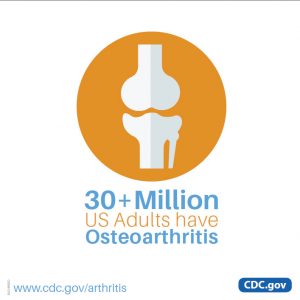 You have undoubtedly heard about the opioid crisis. It is a near daily part of my life since treating pain is a hefty part of what most doctors do. In addition, I am fortunate to work in an academic health setting so I am surrounded by researchers and teachers. Just this week, one of my friends and colleagues, Dr. Charlie Reznikoff was in Washington DC where he testified about opioids to members of Congress. So you might say I’m surrounded by smart people on this issue.
You have undoubtedly heard about the opioid crisis. It is a near daily part of my life since treating pain is a hefty part of what most doctors do. In addition, I am fortunate to work in an academic health setting so I am surrounded by researchers and teachers. Just this week, one of my friends and colleagues, Dr. Charlie Reznikoff was in Washington DC where he testified about opioids to members of Congress. So you might say I’m surrounded by smart people on this issue.
In this post, I want to draw your attention to some new information about treating arthritis pain. A new study was recently published in JAMA (one of the most respected journals in existence) which concluded that for chronic back pain and arthritis pain of the hips and knees, opioids are no better than other remedies.
Let me say that startling conclusion again: opioids are no better than non-opioid treatments at relieving low back, knee, and hip pain. There is NO advantage, and plenty of risk, in using opioids to treat these chronic pain conditions.
This is big news. For me, it is just a little bigger because the lead author of the study is a Minneapolis physician from my medical school class, Dr. Erin Krebs. Dr. Krebs is a leading researcher in this area and I may add, a terrific doctor and person. To her, I say, well done! To learn more about Dr. Krebs, check out her site from the VA here. You can also learn more about her from the University of Minnesota Medical School.
I reached out to Dr. Krebs and she graciously responded to some of my questions about her research. I offer her insights to you below. This is a rare chance to hear from a physician-scientist, uncluttered from what you may find elsewhere on the Internet. Often people ask me what where to get reliable information on health issues. On this issue, this is as reliable as it gets. I’ll include a couple links as well, including one to an audio interview with Dr. Krebs. Read on.
What is an opioid?
Before we get into the interview with Dr. Krebs, a quick clarification on what we mean by opioid. We’ve all heard about opioids in the news, but what exactly are these drugs?
The term opiate refers to a natural-occurring substance derived from poppy plants. (Wizard of Oz, anyone?). This includes drugs such as morphine, codeine, and heroin. Opioids are synthetic (manufactured) versions that work much the same way. Example of opioids are hydrocodone, hydromorphone, fentanyl, and oxycodone.
That being said, the distinction between opiates and opioids is not really used much anymore. We just called all these medications opioids now.
What are opioids use for?
In the distant past, doctors used opioids for severe pain. The main one was morphine and it played an important role in treating very severe pain and other symptoms. This was usually in hospitalized patients, or patients with cancer pain, or patients nearing the end of life. Opioids were rarely used for chronic pain in the general population.
That all changed in the past 20 years or so. For a variety of complex reasons, doctors started prescribing opioids for chronic pain. The prevailing rationale was that chronic pain patients legitimately needed some relief. Fair enough. It was also thought that the side effects of these opioids were not too severe. That’s questionable. Most importantly, for quite some time there was a widely held belief that when used as intended, opioids were not addictive.
We were wrong.
Opioids have lots of side effects and they are most definitely addicting. Now overdoses from opioids are at epidemic levels.
This was all done with the cooperation and encouragement of pharmaceutical companies. For a compelling read about the pharmaceutical connection with opioids, I recommend this piece from the New Yorker. You can draw your own conclusions.
Guidance from Dr. Erin Krebs
So we are really in need of science to guide us. That is what Dr. Krebs is doing in her research at the Center for Chronic Disease Outcomes Research which is based at the Minneapolis Veterans Affairs Medical Center. Let’s turn to her for guidance.
Q: What interests you about pain management? Why did you do research on chronic pain control?
Dr. Krebs:
“Chronic pain is exceptionally common and I didn’t feel well-prepared by my training to manage it. The more I tried to learn and teach myself, the more gaps I found in the science about chronic pain management. It seemed to me that this was an important and necessary area for research.
As an aside, I like doing research on pain because almost everyone can relate to the topic. If you haven’t suffered from back pain, you almost certainly know someone who has.”
Q: When are opioids known to be helpful? What types of conditions?
Dr. Krebs:
“Opioids continue to be invaluable for management of pain at the end of life and for short-term management of severe pain due to serious disease, trauma, or surgery. These are traditional uses of opioids that aren’t being questioned.
What we are seeing in the current opioid death epidemic is the consequence of over-prescribing opioids for a much wider range of painful problems. Opioids have never been proven to be better than standard pain medications or non-medication treatments for most common pain problems, including chronic back pain and arthritis pain. Patients and doctors need to be asking more often, “is an opioid really the best choice in this situation?” If opioids are prescribed, we should recognize that they have serious risks for anyone who takes them—not just those who misuse them—and be much more careful in our prescribing and follow-up.”
Q: Many people say that opioids are the only intervention that relieves their chronic pain. They may be skeptical that acetaminophen and ibuprofen will help them. What do you say to them?
Dr. Krebs:
“All available pain treatments work for only a subset of people, so it is important not to give up too soon on non-opioid options. In this study, we used a wide variety of opioid medications beyond the likely suspects (including prescription meds such as meloxicam, topical diclofenac, topical lidocaine, and nortriptyline). A clinical pharmacist followed up frequently with patients (an average of 9 times in 12 months) and medication changes were made based on how patients responded to each treatment change. In the non-opioid arm of this study, we tried an average of 4 different non-opioid medicines.
It’s important to remember that medication is not the only or best way to treat chronic pain. Guidelines based on good research evidence recommend exercise, rehabilitation therapies, and other non-medication approaches as the best ways to manage chronic back pain and osteoarthritis pain.”
Q: What do you hope doctors should learn from this study?
Dr. Krebs:
“If patients are having persistent pain despite treatment with non-opioid medications, don’t start opioids. Consider other non-opioid medications, maximize non-medication therapies, and focus on helping patients improve their life, not just their pain.”
Q: What do you hope everybody else – regular people – learn from this study?
Dr. Krebs:
“We already knew opioids were more dangerous than other treatment options, because they put people at risk for accidental death and addiction. This study shows that extra risk doesn’t come with any extra benefit.
So what works for pain? We have many different pain therapies that are effective, but pain is highly individual and no one treatment works best for most people. Most people will eventually find a combination of approaches—medication and non-medication–that works for them. Careful “trial and error” is often needed to find the best medication regimen. It’s also important to find ways to get more exercise and manage stress—this will make pain much more manageable in the long-term.”
Q: What research are you working on next?
Dr. Krebs:
“My new study is focusing on how to improve care for people who are already taking long-term high-dose opioids and still having severe pain.”
For more information about this new study from Dr. Krebs, click on the PCORI site here.
I want to thank Erin for sharing her thoughts with me even in the midst of what must be an exceptionally busy schedule as of late. Just search online for her name and “pain study” and you get bunches of national media interest: NPR, New York Times, Mother Jones, NBC News, and on and on. So its not exactly like she’s sitting around with nothing to do. My thanks to her!
I’ll close with a link to an audio interview with Dr. Krebs from Minnesota Public Radio.
Subscribe by e-mail to MyHealthyMatters.org or leave me a comment if you wish.
David


